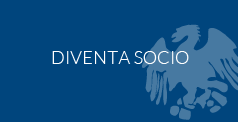Meeting skills in English - Modalità FAD (Formazione a distanza)
Durata: 9 ore
Calendario: 8, 15 e 22 giugno 2022
Orario: 9.30/12.30
Sede: FAD (Formazione a distanza)
Costo: gratuito - finanziato da Ebiter Milano - Ente bilaterale per lo sviluppo dell'occupazione delle professionalità e della tutela sociale nel settore Terziario della Provincia di Milano
Partecipanti: max 10 persone - Dipendenti di aziende associate Asseprim di Milano e provincia in regola con i contributi Ebiter.
Aspetti tecnici:
Meeting skills in English
Docente
Aaron Gordon
Contenuti
Guidelines and principles
The setting point for the workshop is to develop a culture of Meeting skills where roles, responsibilities and effective communication is shared through clear goals and ground rules.
Emphasis will be placed on both in-person and remote meetings; effectiveness of shared rules will be discussed - a set of common guidelines will be created and then embedded for future meetings.
The workshop’s approach is practical – participants will experiment meeting skills techniques and receive specific feedback.
During the workshop simulations and role plays will be used – all materials and shared information will be collected and transformed and provided to the participants in order to have a clear tracking instrument that can be used before and during the following meetings.
Goals and contents - Identifying current meeting practices in your company and in your role
Effective Meeting Cycle
The Effective Meeting Cycle - participants will be exploring the 5 steps and how to implement them.
Stage 1 – Planning
How to organise meetings adding value/ delivering the solution in the most appropriate way.
Stage 2 – Organising
Participants will learn how to plan outcomes and to organise subsequent steps in accord.
Timing and constructing the agenda
How to properly structure the agenda, circulate it in advance of the meeting, reflect on the impact of a well organised meeting and how time is managed.
Priming
Introduce Priming as a key tool in engaging participants before they attend the meeting.
Stage 3 – Facilitating
Introduce options for facilitation:
Meeting owner as chairperson – how to be an independent facilitator.
How to engage the participants as presenters/ guest speakers throughout the meeting.
Stage 4 –Outcomes
What should happen to an outcome once it has been established.
SMART planning – specific, measurable, agreed, realistic, timebound.
Identifying owners.
How and when to record outcomes.
Decision Making Techniques – LAB session
Group will select a Decision Making Technique to research and feed back on.
There are: Mind maps - SWOT analysis - Fishbone diagram
Stage 5 - A Successful Close
10% of the meeting time should be dedicated to closing or wrapping up, in order to complete the meeting cycle and enable people to move to the review stage.
Minute Taking
Additional information on Minute Taking will be discussed.







